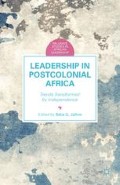Abstract
Nelson Mandela, global symbol of resistance to racial inequality and injustice, became, after his 1990 release from prison, an icon of postconflict reconciliation and national healing. Mandela’s competence in and commitment to efforts at national reconciliation was unrivalled. To Afrikaner whites, the ethnic group dominating South African politics since 1948, Mandela affirmed that their language, which he had studied in prison, was a true tongue of Africa. In his first State of the Nation address as president, he recited, in Afrikaans, Ingrid Jonker’s poem about the 1960 massacre of Black protesters at Sharpeville. Jonker, Mandela asserted, was an Afrikaner and also an African, and these identities were compatible.
Access this chapter
Tax calculation will be finalised at checkout
Purchases are for personal use only
Preview
Unable to display preview. Download preview PDF.
References
Alexander, Neville, 1999. “Frontline: The Long Walk of Nelson Mandela,” interview for the Public Broadcasting Service. http://www.pbs.org/wgbh/pages/frontline/shows/mandela/interviews/alexander.html (accessed August 9, 2008).
Bam, Fikile, 1999. “Frontline: The Long Walk of Nelson Mandela,” interview for the Public Broadcasting Service. http://www.pbs.org/wgbh/pages/frontline/shows/mandela/interviews/bam.html (accessed August 9, 2008).
Battersby, John, 2000. “Mandela,” The Christian Science Monitor, February 10. http://www.csmonitor.com/durable/2000/02/10/pl5sl.htm (accessed February 24, 2008).
Brink,André, 1999. “Mandela, ATiger for Our Time,” DailyMail&Guardian, June 7. www.mg.co.za/mg/news/99junl/7jun-mandela.html.
Carlin, John, 2008. Playing the Enemy. New York, NY: Penguin.
Cawood, Stephanie, 2011. “The Rhetorical Imprint of Nelson Mandela as Reflected in Public Speeches, 1950–2004,” PhD thesis, Department of Communication Science, University of the Free State, Bloemfontein.
Dugger, Celia, 2009. “At 91, Mandela Endures as South Africa’s Ideal,” New York Times, November 8. http://www.nytimes.com/2009/11/09/world/africa/09mandela.html.
Gardner, Howard, 1995. Leading Minds: An Anatomy of Leadership. New York, NY: Basic Books.
Gerwel, Jakes, 2003. “Integrity and integration,” in Asmal, Chidester, and James (Eds.), Nelson Mandela in His Own Words. Boston: Little, Brown.
Giliomee, Hermann, 2013. The Last Afrikaner Leaders: A Supreme Test of Power. Charlottesville: University of Virginia Press.
Greenstein, Fred, 1987 Personality and Politics. Princeton, NJ: Princeton University Press (original work published 1969).
—. 1992. “Can Personality and Politics Be Studied Systematically?” Political Psychology, 13: 105–128.
Habib, Adam, and Roger Southall, 2004. “Different Men, Same Mission,” Financial Mail, May 7. http://free.financialmail.co.za/projects/democ-racy/zzdemb.htm (accessed February 24, 2008).
Halpern, Jodi, and Harvey Weinstein, 2004. “Rehumanizing the Other: Empathy and Reconciliation,” Human Rights Quarterly, 26: 561–583.
Koch, Eddie, 1990. “Mandela and the ‘Young Lions’ of’ 76,” Weekly Mail, February 16. http://www.mg.co.za/mg/mandela/h-lions.htm (accessed June 2, 2003).
Lewis, Anthony, 1997. “Mandela the Pol,” New York Times, March 23. http://query.nytimes.com/gst/fullpage.html?res.9906E6DB1339F930A15750C0A961958260 (accessed August 9, 2008).
Lieberfeld, Daniel. 1999. Talking with the Enemy: Negotiation and Threat Perception in South Africa and Israel/Palestine. Westport, CT: Praeger.
—, 2003. “Nelson Mandela: Partisan and Peacemaker,” Negotiation Journal, 19: 229–250.
—, 2009. “Lincoln, Mandela, and Qualities of Reconciliation-Oriented Leadership,” Peace and Conflict: Journal of Peace Psychology, 15: 27–47.
—, 2011. “Reconciliation-Oriented Leadership: Chilean President Michelle Bachelet,” Peace and Conflict: Journal of Peace Psychology, 17: 1–23.
—, 2014. “Nelson Mandela’s Legacy for African and International Politics,” E-InternationalRelations. http://www.e-ir.info/2014/03/14/nelson-mandelas-legacy-for-african-and-international-politics/
Lodge, Tom, 2006. Mandela: A Critical Life. Oxford, UK: Oxford University Press.
Mandela, Nelson, 1994. Long Walk to Freedom: The Autobiography of Nelson Mandela. Boston: Little, Brown.
—, 1998. Statement by President Mandela on Receiving the Report of the TRC, Pretoria, October 29. http://www.anc.org.za/show.php?id=3072 (accessed February 24, 2014).
—, 2007. “Foreword,” in Padraig O’Malley, Shades of Difference: Mac Maharaj and the Struggle for South Africa. New York, NY: Viking.
—, 2010. Conversations with Myself. New York, NY: Farrar, Straus and Giroux.
Matthews, Joe, 1994. Interview with author, October, Cape Town.
O’Malley, Padraig, 2007. Shades of Difference: Mac Maharaj and the Struggle for South Africa. New York, NY: Viking.
Sampson, Anthony, 2000. Mandela: The Authorized Biography. New York: Vintage.
Sisulu, Elinor, 2013. “Nelson Mandela Remembered,” The Observer, December 14. http://www.theguardian.com/theobserver/2013/dec/15/nelson-mandela-obituary-elinor-sisulu. Sisulu, Walter. 1994. Interview with author, October, Johannesburg.
—, 1999. “Frontline: The Long Walk of Nelson Mandela,” interview for the Public Broadcasting Service. http://www.pbs.org/wgbh/pages/frontline/shows/mandela/interviews/sisulu.html (accessed August 9, 2008).
Southall, Roger and Kristina Bentley, 2005. African Peace Process: Mandela, South Africa, and Burundi. Pretoria: Human Sciences Research Council.
Sparks, Allister, 1995. Tomorrow Is Another Country: The Inside Story of South Africa’s Road to Change. New York: Hill and Wang.
Stengel, Richard. 1999. “Frontline: The Long Walk of Nelson Mandela,” interview for the Public Broadcasting Service. http://www.pbs.org/wgbh/pages/frontline/shows/mandela/interviews/stengel.html (accessed August 9, 2008).
—, 2009. Mandela’s Way: Fifteen Lessons on Life, Love, and Courage. New York, NY: Crown Publishers.
Suttner, Immanuel, 1997 Cutting through the Mountain: Interviews with South African Jewish Activists. London: Viking.
Tajfel, Henri, 1981. Human Groups and Social Categories. Cambridge, UK: Cambridge University Press.
Tambo, Oliver R., 1965. “Nelson Mandela, 1965,” in First (Ed.), No Easy Walk to Freedom: Articles, Speeches, and Trial Addresses, ix–xiv. New York, NY: Basic Books.
Waldmeir, Patti, 1998. Anatomy of a Miracle: The End of Apartheid and the Birth of the New South Africa. New Brunswick, NJ: Rutgers University Press.
Winter, David, 2003. “Personality and Political Behavior,” in Sears, Huddy, and Jervis (Eds.), Oxford Handbook of Political Psychology, 110–145. New York, NY: Oxford University Press.
Editor information
Copyright information
© 2014 Baba G. Jallow
About this chapter
Cite this chapter
Lieberfeld, D. (2014). Nelson Mandela: Personal Characteristics and Reconciliation-Oriented Leadership. In: Jallow, B.G. (eds) Leadership in Postcolonial Africa. Palgrave Studies in African Leadership. Palgrave Macmillan, New York. https://doi.org/10.1057/9781137478122_7
Download citation
DOI: https://doi.org/10.1057/9781137478122_7
Publisher Name: Palgrave Macmillan, New York
Print ISBN: 978-1-349-50223-3
Online ISBN: 978-1-137-47812-2
eBook Packages: Palgrave Business & Management CollectionBusiness and Management (R0)

